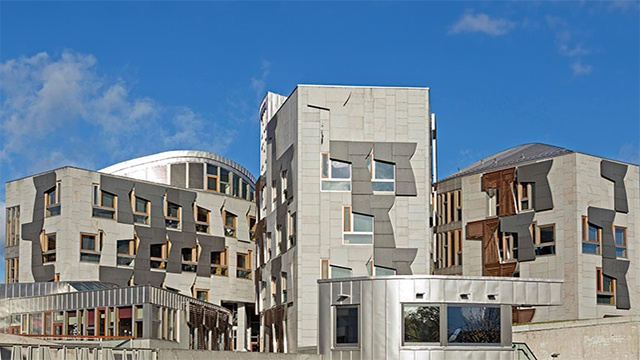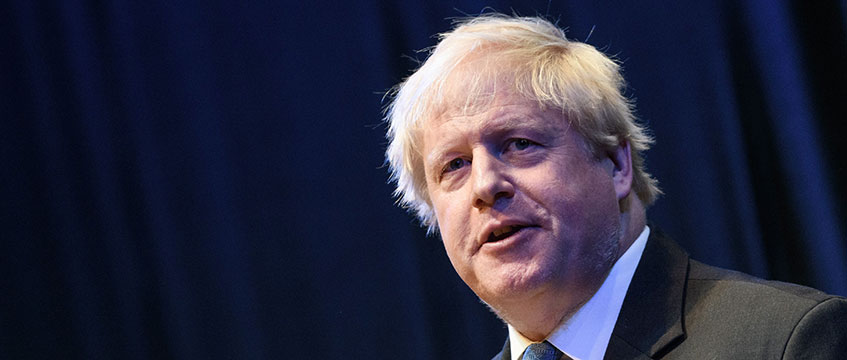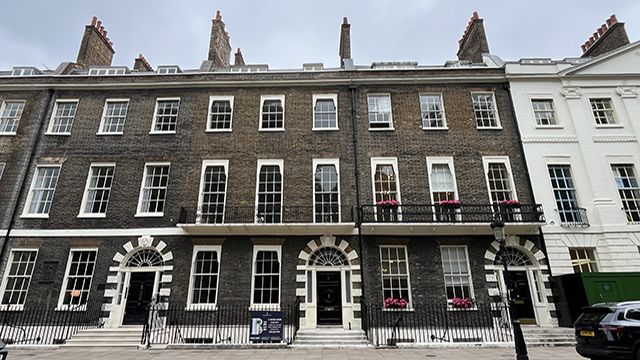Next week, Theresa May will finally leave Number 10. Prime minister was not a successful role for May, but, as around a dozen other men and women from the Conservative Party threw their hats into the ring to be the next leader of the UK, EG has tried to look beyond the ongoing debacle around Brexit and see which – if any – of the candidates for PM could be good for property.
Boris Johnson – backbencher, former foreign secretary and London mayor
Good PM for property because…
Considered by most as the favourite to win the leadership race, Johnson struck up a good relationship with the property sector while he was mayor of London. He continued to invest in major projects such as Crossrail and the 2012 Olympics while in the role. As Ian Fletcher, director of real estate policy at the British Property Federation, says: “He has the understanding of what it takes to get these kinds of opportunities developed.” Johnson also presided over a skyscraper boom, approving City towers such as 22 Bishopsgate and 1 Undershaft.
Bad PM for property because…
The sector is nervous about his approach to Brexit, with one chief executive, Alex Price of Palmer Capital, only crediting him for being a better candidate than Jeremy Corbyn. Price adds: “While he is the most electable current Conservative MP, that’s probably because of his unique brand of style over substance. Boris would not get my vote because he will create momentum to progress Brexit. Almost all of the industry wants a managed exit from the EU and thereafter sensible and consistent UK policies rather than bluster and rhetoric, however amusing.”
Sajid Javid – home secretary, formerly secretary of state for communities & local government
Good PM for property because…
He is known for having a “cool head in a crisis”, which was needed when the Grenfell fire happened during his time as communities secretary in 2017. According to one property insider, he has “a reasonably good relationship” with the property industry. In the plus column, he pledged to get the UK building up to 300,000 new homes a year and launched Homes England saying it would be at the “heart of leading this effort”. In addition, he launched a programme of leasehold and commonhold reform, including a ban on leaseholds for almost all new-build houses to crack down on unfair and abusive practices within the system.
Bad PM for property because…
During his time as economic secretary to the Treasury between 2012 and 2013, Javid shelved plans to help Britain’s so-called “mortgage prisoners” – homeowners stuck with lenders that no longer offered new home loans and due to their financial position unable to move to cheaper rates with other providers. At the time, the Treasury said that “there was not sufficient evidence of consumer detriment taking place to justify the additional regulation”, which would have helped stuck homeowners. Last year, Javid said he would crack down on unskilled labour when the UK leaves the EU, which could have an impact on property development in the UK, including housebuilding, as the construction industry relies heavily on foreign labour.
Rory Stewart – secretary of state for international development
Good PM for property because…
Stewart’s appointment could be good news for property, argues John Hughes, managing director of North West developer Ask Real Estate. Hughes says he is “intrigued and interested” in Stewart, as he has the potential to accelerate the devolution agenda, enabling local authorities to make bigger, quicker decisions on developing regional areas.
“He is a Northern Tory MP… you would hope he will be more tuned into Northern proceedings,” says Hughes. “He seems to have conviction, principle and is a pragmatist – which is what this country needs.”
Bad PM for property because…
Stewart is no stranger to dealing with conflict, having spent three years living in Afghanistan since 2005 as deputy governor of an Iraqi province. But will he be able to bring together a warring Tory party and a divided nation? The odds on Stewart becoming the next prime minister stands at 6%, so the public may need more persuading.
Stewart also has, arguably, less experience in development matters compared to other rivals who have previously spent stints as housing ministers, or heavyweight and bookies’ favourite Boris Johnson who was pro-development during his years as London mayor.
Dominic Raab – former Brexit secretary and housing minister
Good PM for property because…
Brexiteer Raab has had a fleeting taste of the property world with his seven months in post as housing minister. And is committed to getting more homes built and more people on to the property ladder. He wants to create a radical new Help to Buy scheme that gives renters a leg-up onto the property ladder by exempting landlords from paying capital gains tax if they sell their property to existing tenants.
Bad PM for property because…
He’s not a great fan of property developers and thinks that the current government has “failed” to stand up to them. He wants developers that fail to build houses at the rate they promise to face sanctions and the prospect of local councils selling sites on to smaller developers or community groups.
Kit Malthouse – minister of state for housing and planning
Good PM for property because…
Touted as the flag-bearer for the “new generation”, Malthouse has recently highlighted the build-to-rent sector’s potential role in addressing the “urgent” and “moral” problem that the country faces, to provide some much-needed consumer choice. Duncan Salveson, director at Dorrington and BPF residential chair, says he seems “very practical and pragmatic”, even if home ownership continues to dominate the agenda under Malthouse’s watch.
With market observers pinning their hopes on a PM that will show more support for the BTR sector and devise more solutions for the housing crisis, Malthouse might provide the voice – and encourage the investment – that the residential sector needs.
Bad PM for property because…
When Malthouse declared his candidacy, several industry figures were a little nonplussed, not least because he still seems to be finding his feet. Having only stepped up to the housing job in July, he still has yet to make his mark.
The MP is more broadly known for drawing up the “Malthouse Compromise” Brexit plan in January, which attempted to unite the party by proposing an extension to the transition and a redrafted backstop plan. It was voted down by parliament in March.
Michael Gove – secretary of state for environment, food and rural affairs
Good PM for property because…
Perceived as a softer Brexiteer, Gove could be a better choice as the next PM compared to some of his other rivals taking a harder line.
British Property Federation director of real estate policy Ian Fletcher is convinced Gove could be a good contender. “He spoke 15 years ago at our annual residential conference when he was shadow housing minster. There’s not a lot he doesn’t know about specific portfolios within government – people have been impressed by how, after years of drawing back from the sustainability agenda, he has reinvigorated government’s credentials on that.”
Bad PM for property because…
Gove managed to ruffle a few feathers among the property industry during his career in politics – particularly those in the design space.
At a free schools conference in 2011, a year after he ditched the government’s £55bn school-building programme, he raised concerns about his value in development after reportedly saying government is not “here to make architects richer”. Roger Hawkins of architects Hawkins Brown says Gove’s “complete lack of understanding” about design and procurement calls into question his grip on the mechanics of the built environment industry.
And the rest…
Jeremy Hunt – secretary of state for foreign and commonwealth affairs
He has strong business credentials and is known as the richest man in the Cabinet. He may be a skilled person at doing business, but he has never held housing briefs.
Esther McVey – backbencher
She has some knowledge of housing through her former role as work and pensions secretary. Under her watch, the department merged universal credit with six previous benefits – including jobseekers’ allowance and housing benefit – into a single payment.
Matt Hancock – health secretary
He touched on property issues during his role as secretary of state for digital, culture, media and sport. In this role he oversaw reforms to the electric communications code to give every household a legal right to request a fast broadband connection – effectively obliging landlords to allow telecoms providers to put their kit in their buildings. Says he is committed to reviewing the business rates system.
Andrea Leadsom – backbencher
The former leader of the House of Commons may have touched on property through sustainability issues during a spell as energy minister. She’s fairly strident in terms of being an advocate for a no-deal Brexit at the end of October, which is unlikely to go down well with the property community.
James Cleverly – Brexit minister
He has vowed not to duck a no-deal Brexit as the 11th Conservative to launch a bid to succeed May. Another newbie for the property industry, but not shy about airing his views on Twitter, most recently going after Corbyn’s son for renting out his ex-housing association property on Airbnb.










